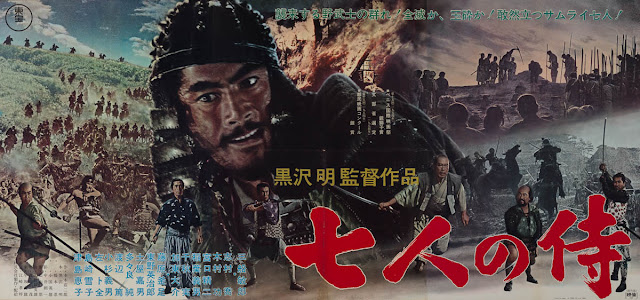Alien Covenenant (Dir Ridley Scott, 2h 3m)
Midway through Alien Covenant, Michael Fassbender as the emotionally opaque android, David, quotes, in sonorous terms, the misatribued "Ozymandias": "Look on my works, ye mighty, and despair". And, whilst this is David commenting upon the fragility of human existence, and his own terrifying work, it's also perhaps the best way I can describe the Alien franchise at this point, as little more than a colossal but collapsed, a once great and terrible cinematic Odyssey laid low both by Scott's return to the franchise in the visually arresting but pretentious Prometheus, and by the series decline in the 1990s in the troubled Alien3 and in the messy and half-baked Alien Resurrection. Whilst Covenant does go some way in throwing up the scaffolding around those skeletal, Swiss-Gothic legs, and even plants a few new seeds in unsuspecting human hearts, it does so in a pale homage to the original.
The true star of this show is both the return of those lovable xenomorphs-absent in their true, horrifying forms from Prometheus, and back to their terrifying best, hopping outta eggs, popping out of stomachs, and so on. Whether Scott's finally beginning to understand what made the creatures devastatingly effective, both in his own 1980 original and in James Cameron's more action-heavy take on the xenomorphs, or whether he's simply stumbled across what made them effective, he's got it pinned down perfectly. The creature appears first in a surprisingly-quickly developing, off-white version that calls to mind the Prometheus creature, shark-fin head and all, then, with some "work" by the diabolic David, in their egg-based, face hugging iconic form. By far the best scenes of the film are with the iconic monster, fleeting though they are, efficient and deadly deaths dealt out with almost gleeful panache, and as with the original two films, less is definitely more.
Speaking of David, and indeed the other role that Fasbender, the kindly and almost protective Walter, plays, both characters are by far the star of the show; David in particular is chilling, at once intelligent and vicious, calculating and plotting the downfall of his human creators. One of his dual scenes with himself, (an effect that, whilst impressive, is largely shot in the dark or gloom), focused upon the different between the two units, the creative and the worker, as David teaches Walter to play the recorder. Elsewhere, however, David lapses into scenery chewing, playing Wagner, quoting poetry, dissecting major characters from Prometheus, and generally attempting to "improve" the alien creature into a pure work of art-the reveal at the end of the film turns the character from mere sociopath into full-on, almost Bond-ish cackling villainy as he sets about his plan.
Elsewhere, the cast is ironically, but for a few of the major characters, by the numbers. Protagonist Daniels is, down to her appearance, a retread of Ellen Ripley-a tough, resourceful character, not afraid to tote a gun, and deal with the aliens both on the planet and the ship, but as the aliens winnow down her crewmates, she has to shoulder responsibility. Pilot Tennessee, meanwhile, as the intelligent but tough centre of the film, seems a re-tread of Hicks from Aliens. Otherwise, the other 10 members of the crew are there to be butchered, chest-burst...ed? and killed by the xenomorphs, as the film merrily chops through them. Even Walter seems to be a little dull compared to his homicidal predecessor.
Where the film struggles, however, is in its tone, and in its attempts to demystify the alien. Let's look at the latter first. Since the beginning of the alien Trilogy, in both Prometheus and Covenant, Scott has attempted to create a backstory, a creation myth tying both Xenomorph and humans together, to explain where the murderous creatures came from...and this is a problem. As with any of the great monster and fiends of major horror movies (Freddie, Jason, etc), the more we know about them, the less frightening they are-the more the titular beasts are seen as the creations of a demented android, the further they seem to stray from Scott and Cameron's silent, sinister beasts. By the time facehuggers start launching themselves out eggs at unsuspecting fodder, Scott has restored some of the kudos of these creatures, but fatally undermined their mystery.
And thus the tone becomes an issue-with David's overly portentous dialogue, and almost pamtomish actions, the xenomorph becoming a plaything, and a creation of various forces, rather than a creature bent on destruction, a motiveless, unstoppable killing machine, and a supporting cast that sit somewhere between fodder, pretentious explorations of religion, and tiring re-treads of some of the franchise's best loved characters, together with a couple of ludicrous kills, I couldn't help but laugh in places. If Scott does well in places to capture the horror of his original creation, he undermines it with over explanation and a desire to make everything far more important than it actually deserves.
By far the most painful thing, however, is the way in which this film attempts to recapture the original two films, down to almost slavishly copying scenes. A fight with a xenomorph against plant machinery? Check. Our heroine hefting a gun and swearing her way through a firefight? Check. Some idiot peering over a xenomorph egg to be promptly facehuggered? Check. A crew of misfits (despite their supposed backgrounds, there's almost no distinguishing anyone who isn't a pilot or a main character apart)? Check. Heck the film even has a twist ending which I won't spoil here, much as the other films did. As a result, it feels like a selection of pre-assembled parts, clumsily held together by Scott's mythologising and turgid dialog.
By no means the worst film that Scott has made, and by far the better of the Alien prequels, Covenant is still an overly long, overly slow, and sadly, self-important film. A pale shadow of what once was.
Rating: Neutral.

.jpg)

Comments
Post a Comment